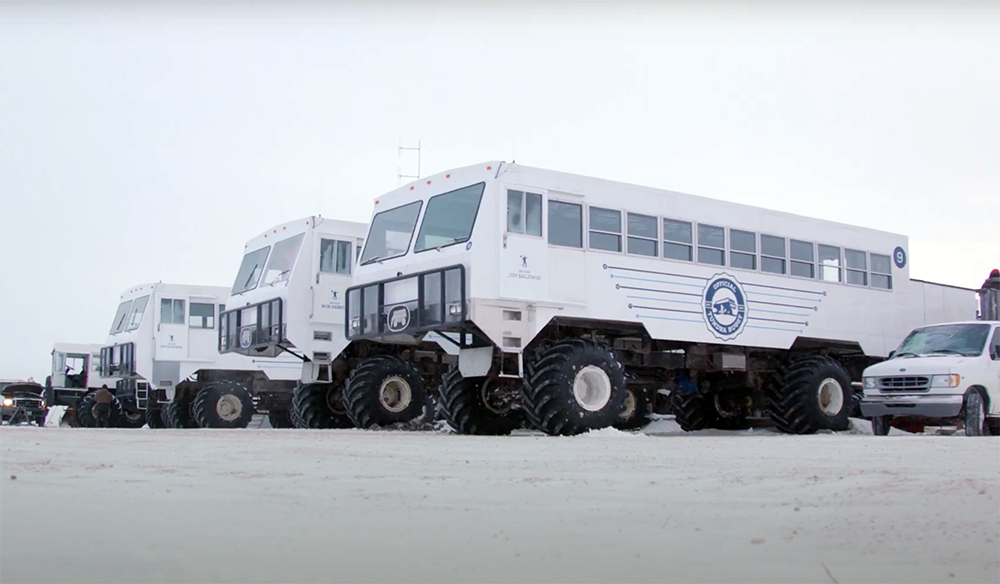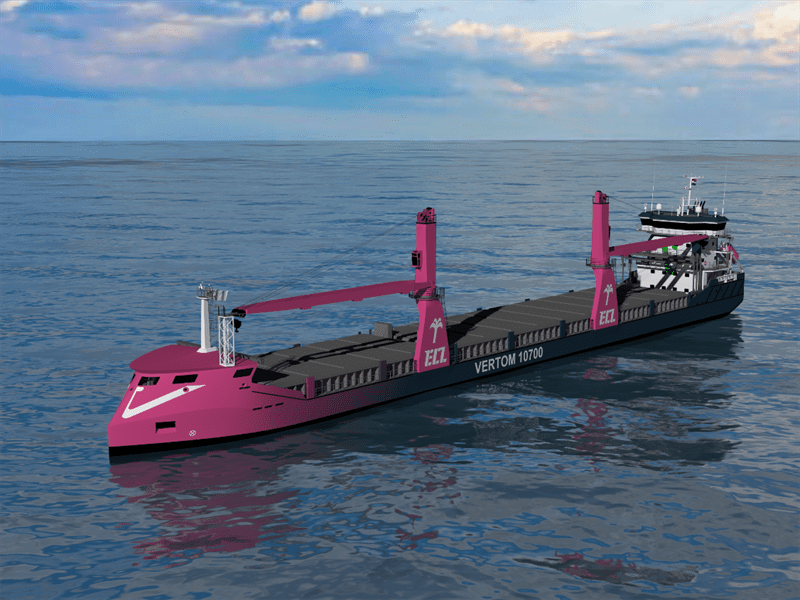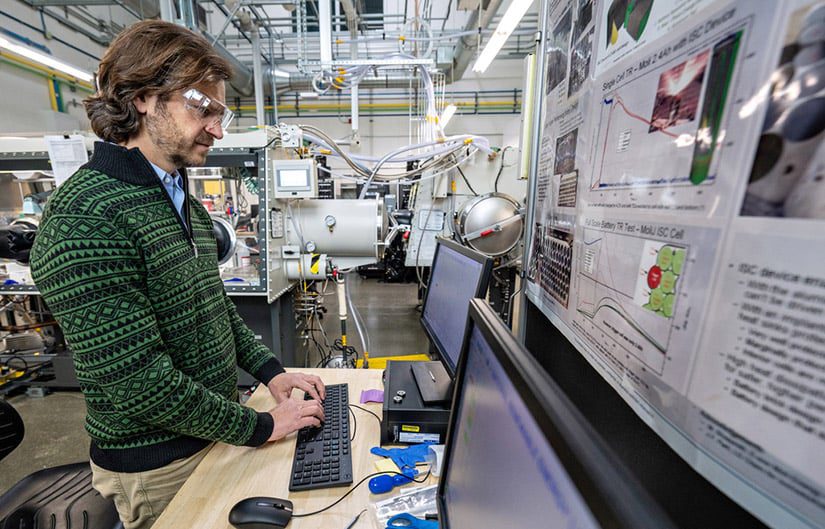Polar bears are the poster animals for the dangers of climate change, so it’s a tragic irony that taking a tour to observe them in their vanishing natural habitat means riding in a giant diesel-belching off-road vehicle. Now one tour operator in Churchill, Manitoba has taken a small step to clean up its act with the introduction of an Electric Vehicle Tundra Buggy.
Frontiers North Adventures, which offers tours to observe polar bears, beluga whales and other wonders of the Arctic, has converted one of its diesel-powered Tundra Buggies into a battery-powered vehicle (with the support of Manitoba’s Conservation and Climate Fund, the Vehicle Technology Centre and Red River College Polytech’s Vehicle Technology and Energy Centre).
“In addition to contributing to Frontiers North Adventures’ reduction of greenhouse gas emissions, the main deliverable of this EV Tundra Buggy will be a silent touring experience for our guests,” says John Gunter, CEO of Frontiers North Adventures. “The EV Tundra Buggy makes it easier for machines to fade more into the background of any guest’s wildlife experience in Churchill.”
The Tundra Buggy, which seats up to 40 passengers, was converted using a repurposed battery from an electric bus. First it was shipped from Churchill to Winnipeg, where it was lifted off its frame. “We rolled out the diesel undercarriage and we rolled in a new frame, new suspension, new axles, new propulsion, new motors,” John Gunter told CTV News. “By transitioning from diesel to electric, we’re going to—in a normal season—reduce our greenhouse gas emissions by about 8.3 tons of carbon dioxide.
The Arctic is, so to speak, Ground Zero for the effects of climate change, but there, as elsewhere in the world, efforts to address the problems are proceeding at a glacial pace. Frontiers North, one of several operators that offer Arctic wildlife-viewing tours, has a fleet of 12 diesel-powered Tundra Buggies, which it hopes to convert to electric power over the course of a decade. “As we continue to transform our remaining Tundra Buggy fleet, our GHG emissions could be reduced by more than 3,600 tons of carbon dioxide over the next 25 years,” says the company.
To learn more about polar bears and how climate change endangers their survival, check out the conservation organization Polar Bears International.
Sources: Frontiers North Adventures via CTV News

















































































